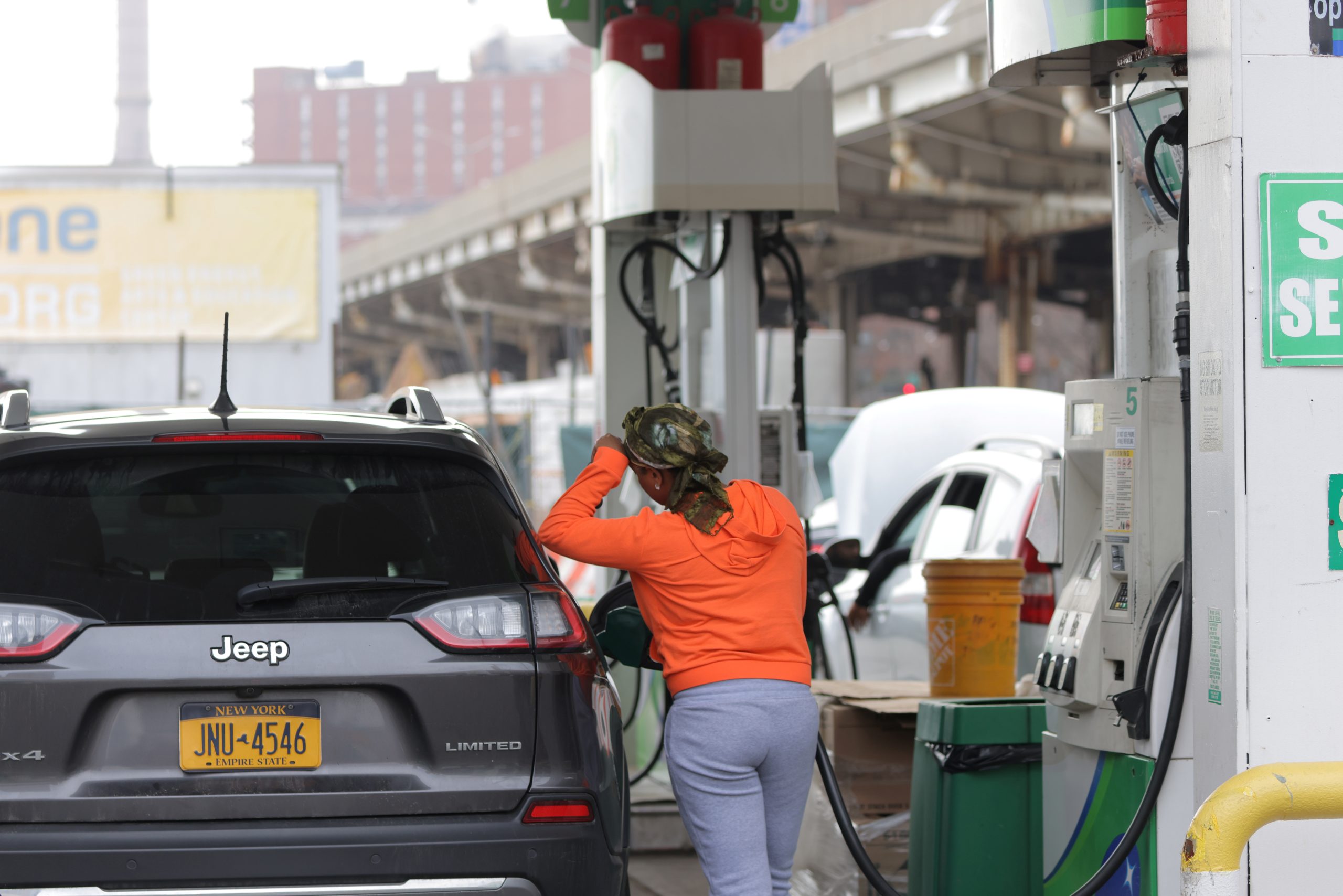
Katie Kerekes, FISM News
[elfsight_social_share_buttons id=”1″]
The national average for a gallon of gas has risen to $3.50, 20 cents more since just last week, according to the latest report from AAA.
It seems wherever you look, fingers are pointing to a different cause for the high prices. Whether it’s global warming, China, the war in Ukraine, or policies coming out of Washington, D.C., everyone seems to have someone or something to blame.
‘RISING TEMPERATURES’?
AAA attributes the recent spike in fuel cost to a combination of increased consumer demand and higher oil prices, as milder winter temperatures may encourage unusual winter travel.
“The recent rising temperatures led to rising pump prices,” said Andrew Gross, AAA spokesperson. “And with the cost of oil hitting $80 a barrel, there is a lot of upward pressure on gas prices at the moment.”
However, the facts seem to counter Gross’s claims. In 2022, North America had its coldest December since 2013 and the contiguous U.S. had its fifth wettest December on record, according to the National Oceanic and Atmospheric Administration. As for the coming winter weeks, projections by The Weather Channel show only the southernmost U.S. states having above-average temperatures, while the rest of the contiguous U.S. is on course for average or even below-average temperatures through January and February.
THE OPEN CHINA EFFECT
Fox News Business reported that the swift economic reopening in China has attributed to an overall surge in the price of a barrel of oil, citing a 47-cent increase attributed to this alone.
Undoubtedly, the loosening of restrictions that effectively locked down most of China’s 1.4 billion people is bringing with it an increased demand for oil, as Chinese citizens are freer to travel now than they have been for nearly three years.
‘BIDENFLATION’ AT THE PUMP
Since its inauguration, the Biden administration has implemented policies that have taxed the American oil industry and revoked the nation’s energy independence status. With the administration ending numerous oil and gas leases, refusing to issue new leases in the U.S., canceling the Keystone XL pipeline, and tightening regulations, the price of gasoline nationwide has more than doubled.
“If President Joe Biden came out forcefully on the side of increasing U.S. oil production, the price of a barrel could fall quickly – even if it takes a while to bring that energy online,” Thomas Barrabi and Ariel Zilber wrote in the “New York Post.” The Post columnists argued that the functionality of the oil market allows for quick cost reduction based on the simple perception of supply increase.
The administration has made recent moves to effectively reduce the available supply of oil, however.
RUSSIAN INVASION OF UKRAINE
The Biden administration’s favorite scapegoat for rising oil prices has been the Russian invasion of Ukraine. Certainly, when the world’s second-largest oil exporter, Russia, invades a neighbor and receives the condemnation of most of the Western world, oil prices are going to be affected.
Washington is not without culpability in this matter, either, though.
In December, the European Union, the U.S., Japan, Australia, and Canada agreed to cap Russian oil prices at $60 per barrel. In response, Moscow said it simply won’t do business with any nation enforcing the cap. That effectively takes about 8.3% of the world’s exported oil off the market for the U.S. and its allies, driving down supply and increasing prices at the pump.
TAPPING THE STRATEGIC RESERVES
The one move the administration has had for increasing the supply has been a totally unsustainable one: repeatedly tapping the Strategic Petroleum Reserves (SPR).
This move has temporarily decreased fuel costs nationwide, but Biden continues to receive criticism for his lack of urgency in response to the oil crisis and lack of sustainable answers. His administration has also been under fire for authorizing the sale of millions of barrels to China, while American pocketbooks cripple under the price hikes.
Not to mention that Biden is draining reserves that were meant for emergency situations.
“The Strategic Petroleum Reserve was intended to ensure that America had sufficient oil reserves in the event of an emergency,” Sen. Ted Cruz (R.-Texsa) said in a statement.
Instead, Joe Biden sold a portion of this critical national security asset to the Chinese Communist Party when the CCP was stockpiling oil for its own strategic use, and while Americans are paying higher and higher prices for fuel because of the Biden administration’s disastrous energy policies.
OPEC CUTS PRODUCTION AGAINST BIDEN’S PLEAS
The Organization of the Petroleum Exporting Countries (OPEC) accounts for about 44% of the world’s oil production. In October, the cartel of oil-producing states that includes Saudi Arabia, United Arab Emirates, Venezuela, Iran, Iraq, Libya, Kuwait, Nigeria, and others, announced it would be cutting production in order to drive positive economic impact on its member nations.
Saudi Arabia’s Foreign Ministry reported in October of last year that President Biden had begged them not to cut production before the November midterm elections in the U.S. However, OPEC leaders refused to meet his pleas, citing negative economic impact on their nations if they complied.
